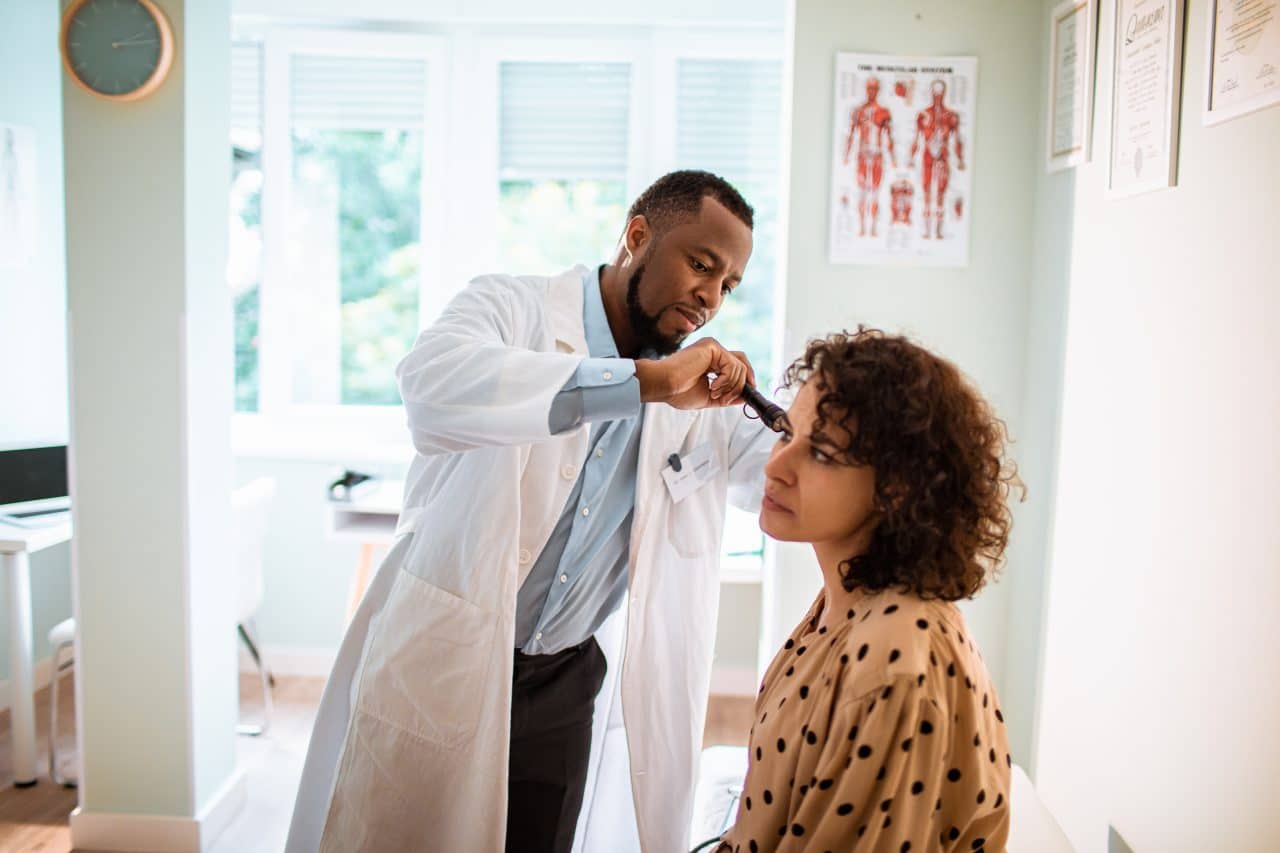If you’re experiencing problems with feeling imbalanced, being unsteady on your feet or experiencing vertigo, you may have a vestibular disorder. Your vestibular system, like your auditory system, is housed within your inner ear. If you experience trouble with one of these systems, both may be affected, which can also affect your hearing. We review this connection below.
The Vestibular System

To keep you balanced, your brain relies on information from the eyes, the limbs and the vestibular system within your inner ear. Within the inner ear are three main parts:
- Semicircular canals. These canals are filled with fluid that moves as you move your head, triggering sensory hair cells to bend. Signals are then sent to the brain about your head movements.
- Utricle and saccule. These otolith organs contain tiny stones called otoconia that move in response to gravity. This tells your brain whether you’re standing up, sitting back or lying down.
- Cochlea. This is the snail-shaped organ containing sensory hair cells that convert soundwaves into electrical energy the brain interprets as sound.
Connection Between Hearing & Balance System
Signals from all these parts all travel via the same pathway to the brain, called the vestibulocochlear nerve.
Because these structures are so intertwined, it often means that if something goes awry in one system, the other is affected as well. This is why it’s so common for people with hearing loss to also experience balance problems.
Vestibular Testing
If you’re experiencing balance problems that affect your quality of life and ability to go for walks at Hagood Park, it’s important to undergo a vestibular test. This type of testing can uncover an underlying balance disorder. Types of tests include:
- Auditory brainstem evoked response (ABR) testing, which detects problems with the nerves that connect your hearing and balance systems to your brain.
- Videonystagmography (VNG) testing, which detects involuntary eye movements caused by a disorder of the inner ear.
Types of Balance Disorders
After a thorough evaluation by a balance expert, you may be diagnosed with any of the following balance disorders:
- Benign paroxysmal positional vertigo (BPPV).
- Labyrinthitis.
- Vestibular neuronitis.
- Perilymph fistula.
- Mal de Debarquement syndrome.
For more information or to schedule an appointment with a hearing expert, call Elevate Audiology today.
